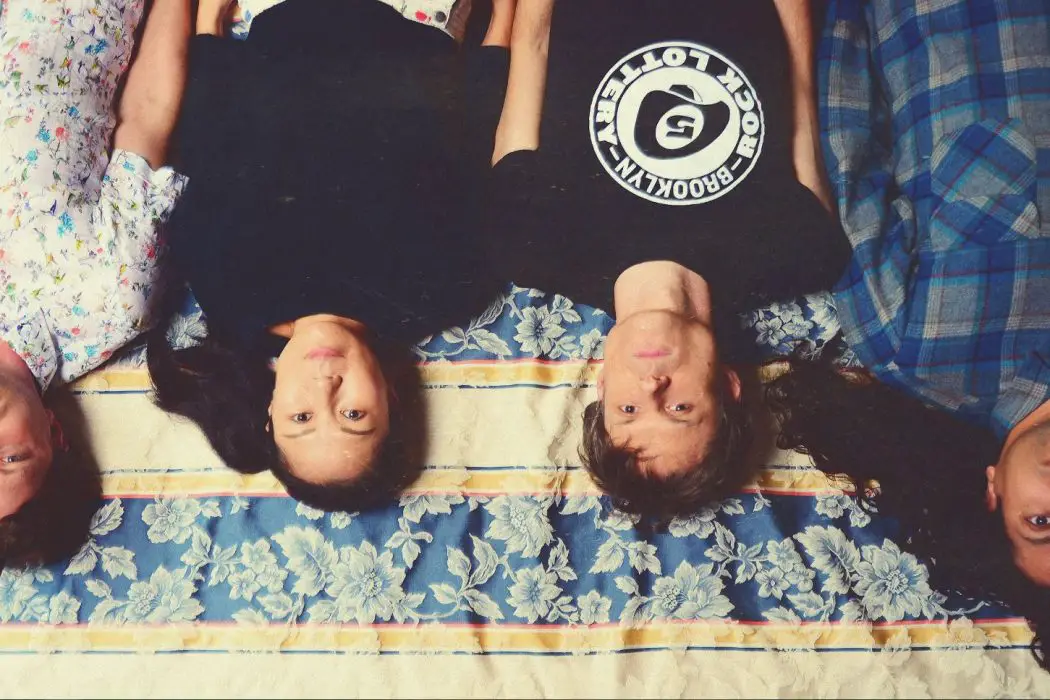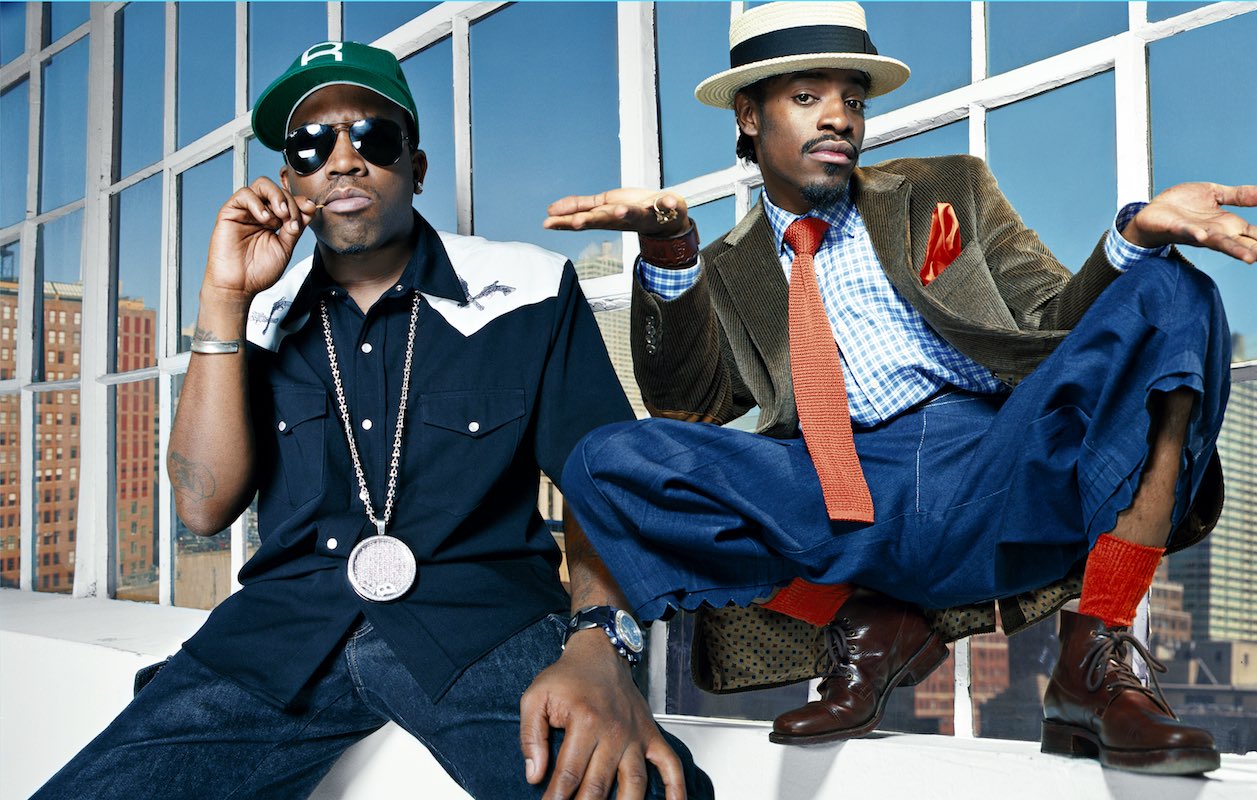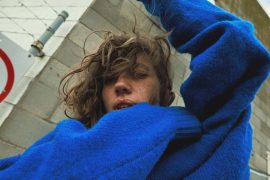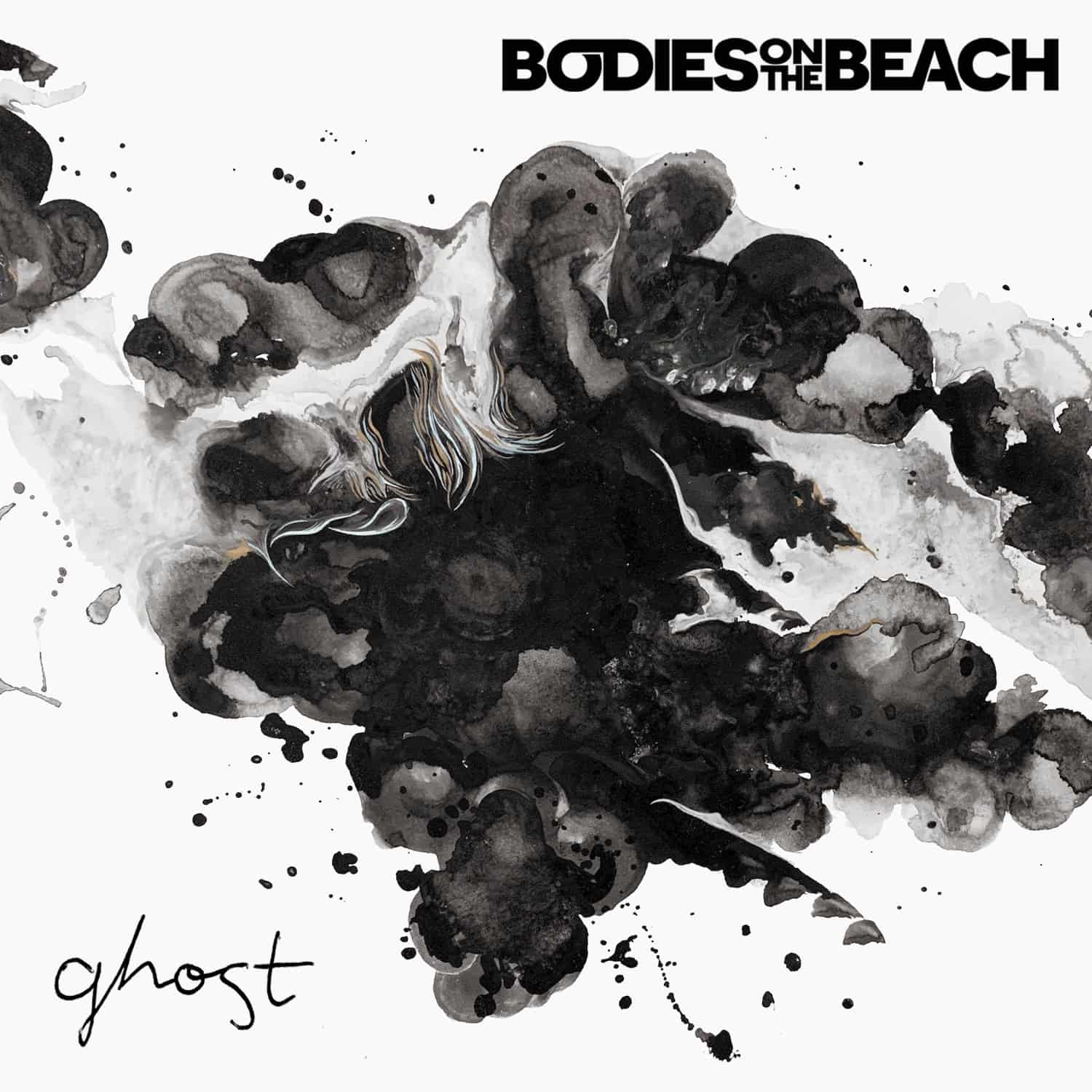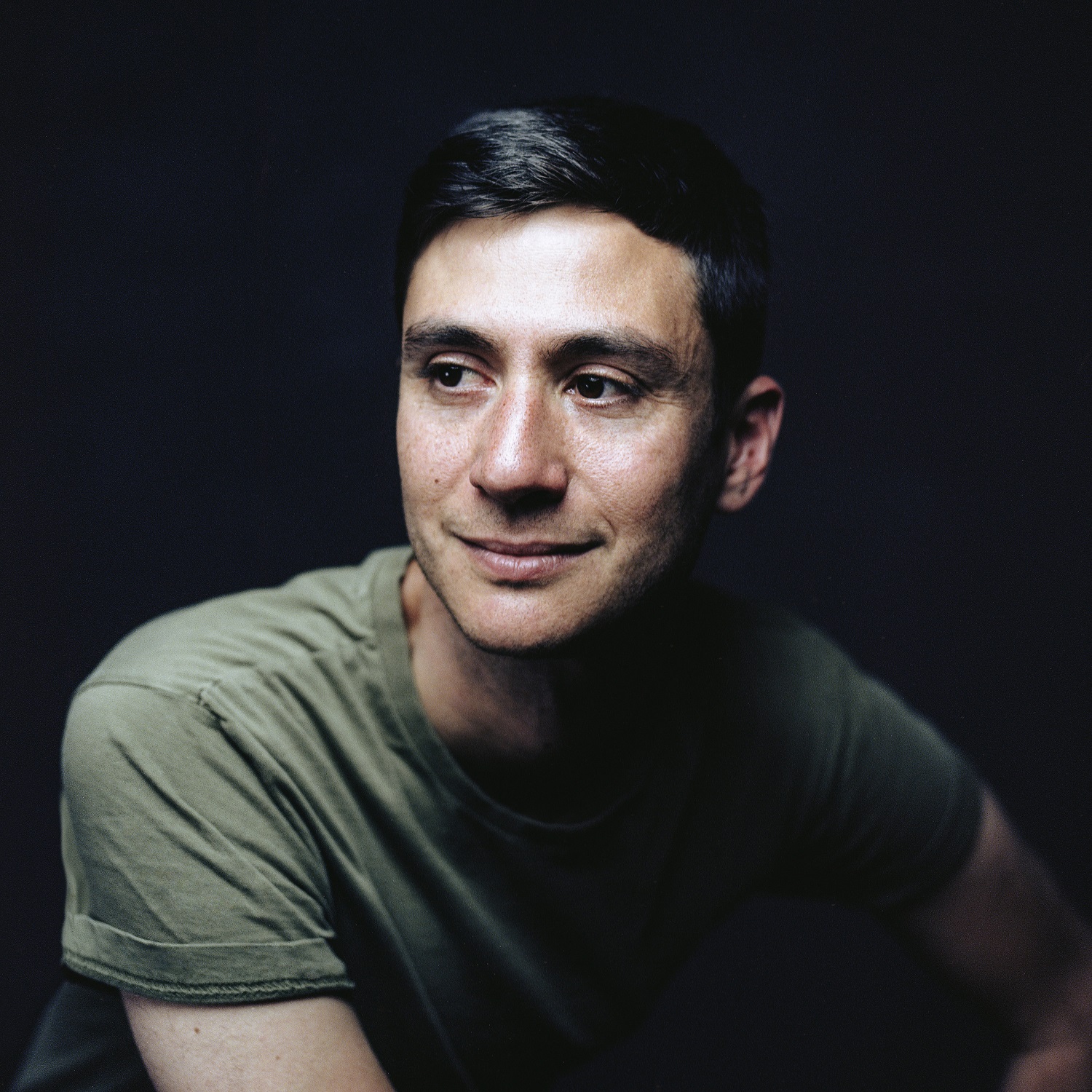Deerhoof’s Greg Saunier sits down with Atwood Magazine to discuss merits of youth, fairy tales, and the ultimate Velvet Underground question: ‘What does it mean to be a rock band?’
— —
Two realizations occurred upon listening to Deerhoof’s Future Teenage Cave Artists for the first time. 1. Before this record, Deerhoof was a total unknown. This is just a fact considering my late entrance into a world of indie-rock previously unknown to me as recent as 2015. 2. At some point, I forget how much younger I am than the bands I write about; Deerhoof formed the same year I was born, 1994.
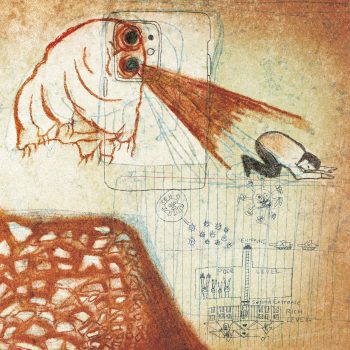
Now that I’ve carbon-dated myself, much of what my conversation with Deerhoof’s drummer and kind-of-sort-of band spokesperson Greg Saunier clarifies itself. Talking with Saunier didn’t uncover some hidden element, rather, it allowed for what was already there to be seen much easier.
Much of the album is a cross between Blonde Redhead and early Seventies Bowie (read: Velvet Underground). There are two, weird synchronicities with worldbeat, electronica, and even carnivalesque attitude to song structure (“Zazeet,” “Farewell Symphony,” and “New Orphan Asylum for the Spirited Deerchildren” respectively). There’s still heartlines of descent from the pavement, as the eponymous lead cut, “Future Teenage Cave Artists” relates to a sense of youth by hearkening back to a popular music style of Deerhoof’s own nascent years in the garage scene of San Francisco. Its imprint is faded, but in the right light, highly visible.
And while there is no such thing as “classic” Deerhoof, this album unfurls as if there were; the first few cuts are very rough repressings of late nineties garage, interspersed with proto-grunge riffs and discordant experiments in a jangle. John Dieterich’s and Ed Rodríguez’s guitars sound almost out of phase from Matsuzaki’s vocals and Saunier’s drums.
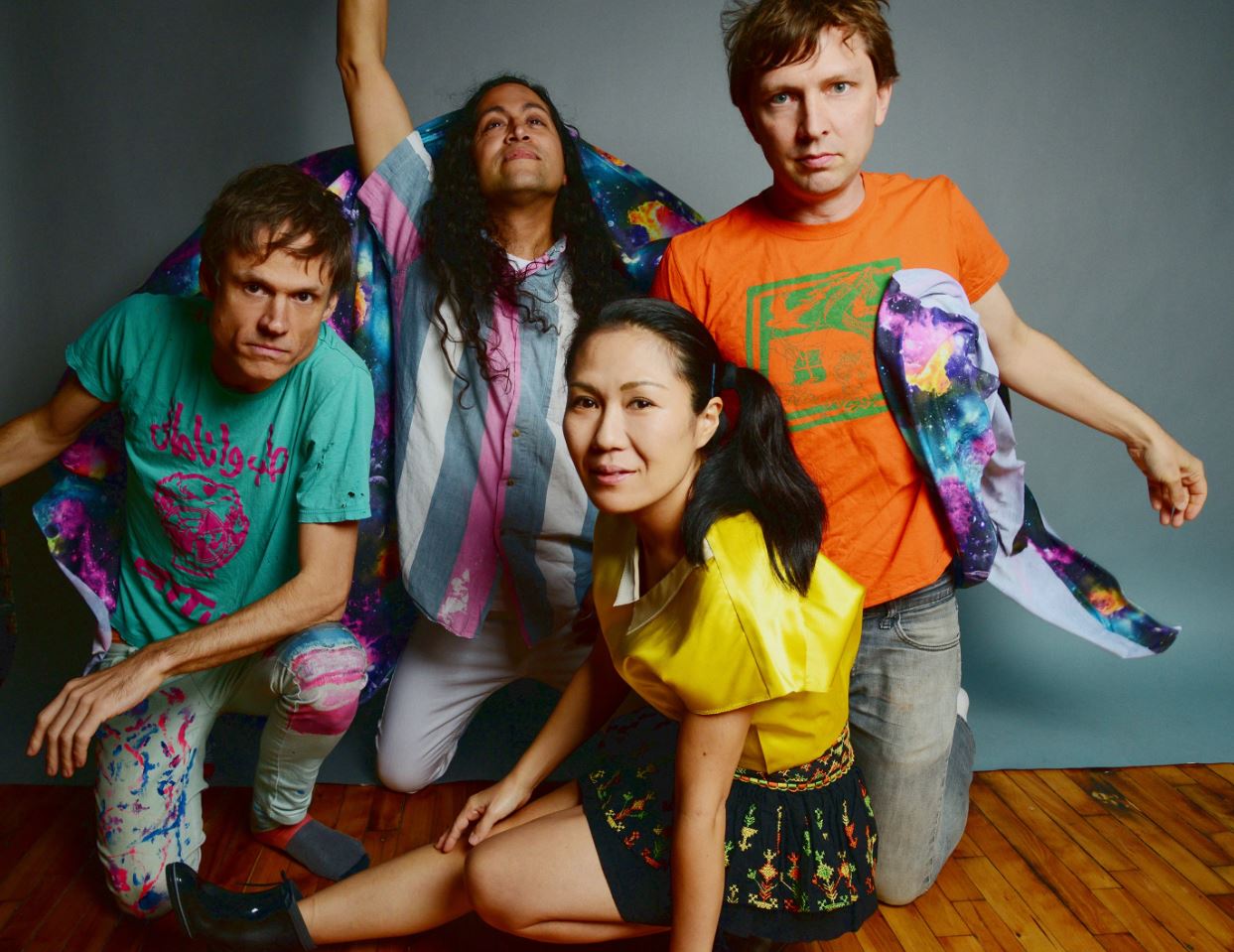
In this regard, despite the always subversive instrumentation, there is still an internal consistency providing a cohesion which Mountain Moves lacked vis-à-vis its nature as a record of spontaneous collaboration and an expansive guest list. The album hangs on the thread of its conceit much like Bowie’s fractured-concept record, The Rise and Fall of Ziggy Stardust and the Spiders From Mars. On their latest, Deerhoof attempts to return to the present from a post-apocalyptic future. As Greg Saunier describes Future Teenage Cave Artists, “It’s acknowledging not even a memory of the past, it’s the memory of an ideal of the past.”
The conceit of this record remains obtuse; human civilization as we know it has collapsed, there are survivors, what would constitute the fairytales of this post-late-stage-capitalist world? The lyrics never make quite such a progressive rock leap in story structure, considering how sparse and sometimes undecipherable they can become, but Deerhoof does dream up some great boogiemen.
The band’s most transformative work, however, is a remarkable run from “Fraction Anthem” to “Damaged Eyes Squinting at the Overhot Sun” Something in this record cracks, and from there emerges a jazzy “Fraction Anthem” along with the truth to this record: when it remains in a lo-fi garage space, Deerhoof succeeds in whatever aspiration, be it soft- or hard-rock. When it moves away from these points, it moves into dicier territory.
Does it work as some avant-garage album? Yes. Does it function as a book of fairytales for a post-apocalyptic future? That’s for listeners to decide. Check out our exclusive interview for all of the insight!
Listen: ‘Future Teenage Cave Artists’ – Deerhoof
A CONVERSATION WITH DEERHOOF
Atwood Magazine: Considering how eclectic Deerhoof’s origins are, your albums are no less eclectic, especially Future Teenage Cave Artists. It's DIY rock, art-punk, jangle, indietronica, neo-classical and it all seems to swirl around. Is this a planned element or an unplanned element?
Deerhoof: First of all, there is almost never a situation where we came into the recording studio. We’re pretty much DIY. We have occasionally used recording studios but only when we were all living in the Bay Area and we’d been practicing like crazy leading up to [the record].
In our case, particularly with this record, we were kind of doing it remotely. Kind of like how people are working now they’re in quarantine. We were living in four different cities and having to email each other a lot of ideas. So no we never talked about being eclectic.
I think our goal is, I dunno, it’s definitely not to create something eclectic on purpose. I think what is happening over the years is that we’re getting, in a way, more eclectic only because the band is getting more relaxed and less embarrassed and less shy about showing ideas to their bandmates. Now a song idea that somebody had that in the past they would have been like “I don’t think this would really work in Deerhoof,” they’ll now just go ahead and share it and then we’ll try it and make something out of it. So the band is kind of getting weirder over the years, in that way.
Deerhoof, being a two-to-three-decade operation, is it a struggle to keep it fresh, or is this a challenge you all relish?
Deerhoof: There’s no trouble keeping it fresh, there’s always too many ideas happening. We’re never stuck, we’re never short of proposed songs. Everyone’s always writing on their own and actually, only a tiny fraction of it ever gets used. We’re looking for stuff that all four of us are excited and songs we think we can play on stage. It’s like the wealth of possible songs is a miracle, we’ve got so much to choose from every time we want to make another record, make a seven inch or make a compilation track or another album. We’ve never struggled to keep it fresh. [laughs] I think we would struggle to tamp it down.
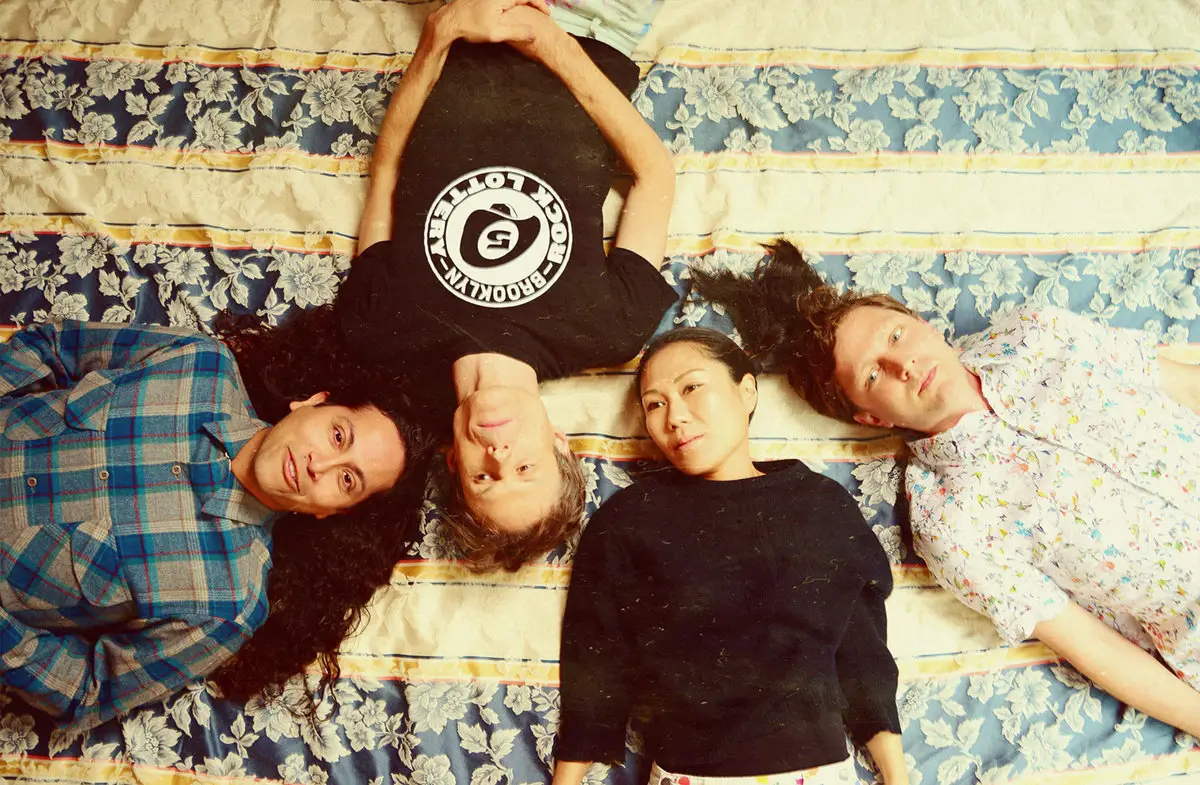
Coming as a non-fan and listening to Reveille and Mountain Moves, I had to get used to the fact that your lyrics are so obtuse. So obtuse in a very charming, creative way, but with Future Teenage Cave Artists, the wordsmithing is a little more serious, that the future of humans is to reform into a more simplistic lifestyle. To go back to being cave artists. What changed between this latest record and Mountain Moves?
Deerhoof: It may not surprise you that we don’t necessarily see our lyrics as obtuse. I think the process for Deerhoof over the years has been to very gradually connect. I think the band started off as hermits, as recluses, and didn’t really relate to anything in San Francisco where we were living terribly much. And we’re kind of secretive of who is even in the band or how we write our songs or how we play them. And I think a lot of that just came from a place of shyness, I mean for example Satomi [Matsuzaki] when she joined, we were on our first tour a week after she joined the band, which was a week after she had arrived in the United States from Japan having never played in a band.
The transition into being a band started off with a lot of reticence and shyness and guardedness and a lot of in-jokes and secretiveness about the way we related to each other that no one else could understand. It’s as if we were creating our own language, our own musical language, kind of like a band’s mythology, with characters and recurring animals and flowers and things. And over the years we’ve gradually become more relaxed and more comfortable. It’s actually been a lot of fun for us because our fans have taught us a lot because they’ve been so supportive of our band for so long. Every time we go on tour we see a lot of the same people, and a lot of them are musicians themselves and we’re fans of their music. We have found a kind of scene after a while or our fans and [us] have created a kind of mini-scene for ourselves. It’s not very huge or anything but it’s very [familial] and I think the desire to connect has become stronger.
It’s kind of like kids with fairy tales, y’know. Fairy tales are really quite morbid and grim, but in a way, they prepare the child for adulthood and the things they might face in adulthood. And we’re trying to create fairy tales that might give people strength when [the climate crisis] really hits. And y’know… it’s not like once the pandemic is done we don’t really have to worry about it, it’ll probably come back every winter, like the flu. It’s going to be very difficult and it’s going to be harder and harder to be a human being on this Earth. Yeah, what are the stories we can tell each other that might be helpful, that might empower a person who is struggling to go through that.
So that’s why we tried to make it a little less, like you say, obtuse.
Like the fairytale metaphor, I get that vibe a lot with 'Sympathy for the Baby Boo,' 'O Ye Saddle Babes,' and even 'Farewell Symphony.' I particularly like the lyrics of 'O Ye Saddle Babes' because it’s a great deconstruction of the cowboy myth.
Deerhoof: Yeah, exactly. The self-proclaimed hero who was going to save everyone. Like “Oh if I had been there with a [gun]…” or this myth we have in America of the Marlboro Man as being some kind of rugged individual who is also in charge when the reality is—although the cowboy is a real thing—especially in our country, [the cowboy] was a manual labour tool who was herding cows to the slaughter so everyone could get their packaged beef dinner.
It’s like a fairy tale about a fairy tale.
A fractured fairytale.
Deerhoof: Yeah, trying to make a new myth about an old myth that nobody believes in anyways.

Would you say that your audience has gotten younger?
Deerhoof: We’ve been pretty lucky, when we play a show there’s incredible range—I’ll describe it this way: I’m working at our merch table, y’know, [maybe] the openers are playing or maybe we just finished playing, and I’m back at the merch table and people come up and talk to me and they pick up a record, “This is the one! This is the one where I first heard you. This is my favourite. This one is the masterpiece.” Then another person will walk up and say “This is the masterpiece! This is the one where I first heard you.” I can’t be one of those people because I’m in the band but what gets communicated to me is that everyone has a different favourite. It kind of depends on when they started with the band.
I think a very normal thing to happen with Deerhoof is someone really hates it at first or is just totally confused by it… But then they kind of learn to like it. And sometimes when you go from hating something to liking something then you feel extra passion about it. I know I’m that way as a music fan when something really bothered me, but then it kind of grew on me. Then I formed a really deep bond with whatever music that was. And people seem to [have gone] through that process of bonding with us starting way back in the late Nineties all the way til Mountain Moves, our last record. That’s when they discovered “it” and that’s when that bonding process happens. So we have a real range of audiences. We feel really lucky about that. We never finally got pigeonholed. To me, that’s great. I love the feeling of a mixed audience.
So I’m gonna make you choose between your children though… Just your favourite song from Future Teenage Cave Artists.
Deerhoof: I really feel like I hit a nail on the head in the first track, the one we named the album after. The song is sung from the point of view of a young person. Which is hard to do if you, yourself, are not very young. I can’t remember, my 56 birthday is coming in a week or two. I feel that [Future Teenage Cave Artists] describes—I mean I was talking before about the unique plight of the younger person in 2020, but there is something universal about young people, which is that for them, they have a lot of energy and a lot to look forward to—I guess I wanted to put the young person at the center of the story.
Put youth at the center of the story, almost.
Deerhoof: Yeah, yeah, even if I’m no longer—you can’t really say I’m a youth anymore—I wanted to put youth at the center, to be the focus. Not to describe them, but to sing what I imagine to be their point of view because I tend to agree with it… I’m caught between the baby boomer generation, which seems like it’s literally trying to destroy human civilization, and then a young generation that’s trying to save it.
Watch: “Future Teenage Cave Artists” – Deerhoof
Another interesting song is one you put on the end of the album, 'I Call On Thee,' very ominous, gentle Bach tune— it feels weird to call a Bach piece a tune?
Deerhoof: You know, his job for most of his life was [as a] church organist. So he’s in this Lutheran church in the 18th century—and the church sings, it’s a choral and everybody knows the tune—and the tune of that piece is a slow melody going on the high part of the piano [part], what was originally an organ [part] and that slow melody was what everybody in that church knows and maybe some even sung along with. And that’s where the lyrics are from, it’s a hymn, a choral.
And then Bach composed music to go under that tune, which was original.
What was the impetus for its inclusion and placement?
Deerhoof: My roommate at the time bought an upright piano, he was a piano teacher and bought the piano so he could teach lessons from home. And I was like “Cool! There’s this one really, really beautiful Bach piece that I have that might not be too hard for me to play.”
So I found the score online somewhere and started to practice and of course, it was way too hard for me, I was stumbling through it. But I just really loved it and for about three months I would practice it for about 20 minutes a day and… after three months of working on this thing, I felt “You know what, I actually think I can make it from the beginning to the end of this piece in a way that I’m happy with and without screwing up. Let me just record myself playing it.” I put the laptop up on the piano and began recording it in Photobooth with a built-in mic and then we were together, briefly, for one moment while we were finishing the record—we had done it all by email, separately, for like a couple years, but at the end, we all got together and I proposed maybe [“I Call On Thee”] would be a good ending for the song that came before it, “Damaged Eyes” because we had been looking for ending for it; we couldn’t figure out how to end the record and suddenly it seemed like the right feeling. And we ended up putting the phrase “I call on thee…” into the previous song so that they kind of connected.
Just the idea that maybe that younger generation is in some post-apocalyptic environment… [a] crumbled world and has a weird mixture of feelings towards the past, towards their own youth or towards the older generation that they were criticizing that they feel was responsible for creating this dystopia. But maybe now they’re gone and whatever hopes or dreams they had when they were younger had to be abandoned. It’s acknowledging not even a memory of the past, it’s the memory of an ideal of the past.
— —
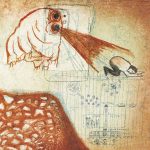
Connect to Deerhoof on
Facebook, Twitter, Instagram
Discover new music on Atwood Magazine
? © Shervin Lainez
:: Stream Deerhoof ::

